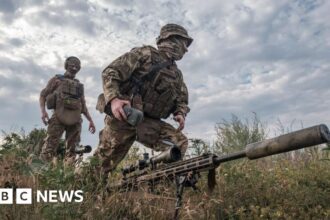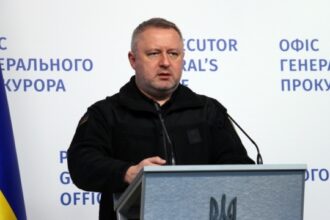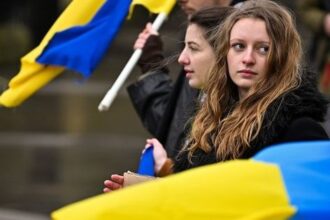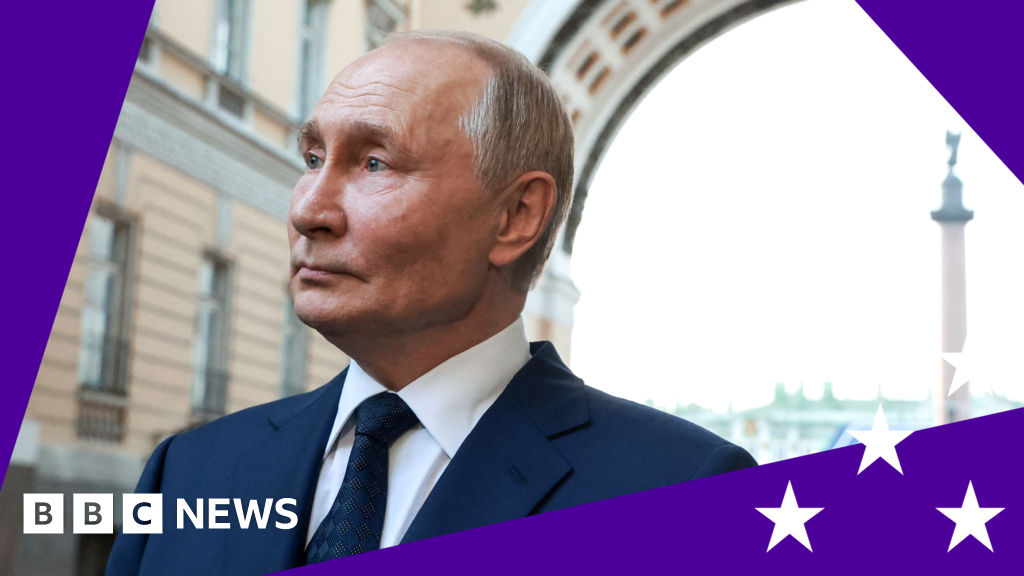Never buy a large amount of champagne unless it’s absolutely necessary.
Vladimir Zhirinovsky, a Russian ultranationalist politician, was so excited about Donald Trump‘s election and sure that it would transform US and Russian relations, that he bought 132 bottles (of bubbly) at the Duma in Russia’s parliament and partied all night long (in the offices of his party) before the cameras.
He wasn’t alone in celebrating.
Margarita Simonyan (editor-in-chief, state channel RT) tweeted that she would drive around Moscow in a car with an American flag on the window.
I’ll never ever forget the moment when a Russian official said she had smoked cigars and drunk a bottle (yes, MORE) of champagne to toast Trump’s victory.
In Moscow, there were high expectations that Trump would end sanctions against Russia, and perhaps even recognise the Crimean Peninsula as part of Russia.
Konstantin Remchukov is the owner and editor in chief of Nezavisimaya Gazeta. He explains that “Trump’s value was that he never preached about human rights in Russia.”
All that fizz was quickly ruined.
Remchukov recalls that “Trump introduced at the time the most severe sanctions against Russia.”
“By the time his term was over, many people were disappointed with his presidency.”
Eight years later, Russian officials are less optimistic about the prospect of another Trump term.
Vladimir Putin even endorsed the Democratic Party candidate. However, this “endorsement”, was widely interpreted by many as a Kremlin prank (or Kremlin trolling).
Putin said he liked Kamala Harris’ “infectious laugh”.
You don’t have to be an experienced political pundit in order to know that on the campaign trail, it’s Trump’s words, not Harris’, that are guaranteed to make Putin smile.
Trump’s criticisms of the US military‘s assistance to Ukraine, his apparent unwillingness to blame Putin for Russia’s full-scale invasion, and his refusal to state whether he wanted Ukraine to win the conflict during the presidential debate are all examples.
Kamala Harris, on the other hand, has argued that supporting Ukraine is in America’s’strategic interests’ and has called Putin a “murderous dictator”.
Russian state television has not been very complimentary either. Few weeks ago, one of Russia’s most acerbic anchors completely dismissed Harris’s political ability. He suggested that she would be better off hosting an TV cooking show.
Another outcome that could be very attractive to the Kremlin is a tight election followed by a contested vote. A post-election America consumed by chaos, confusion, and confrontation would have little time to focus on other matters, including the conflict in Ukraine.
US-Russian relations deteriorated under Barack Obama and Donald Trump. According to the recently retired Russian ambassador in Washington, Anatoly Antonov they are “falling into disarray” under Joe Biden.
Washington blames Moscow for everything.
Eight months after Putin and Biden had met in Geneva for a summit, the Kremlin leader launched a full-scale Russian invasion into Ukraine.
The Biden administration sent a tsunami of Russian sanctions, but US military assistance has been crucial to Kyiv‘s survival for more than two and a half years of Russia’s conflict. Abrams tanks, HIMARS rockets and other advanced weapons have been supplied by the US to Ukraine.
It’s hard for us to believe that not so long ago Russia and the US had pledged to work together to strengthen global security.
In the late 1980s, Ronald Reagan and Mikhail Gorbachev teamed up to reduce their respective nuclear arsenals.
Reagan enjoyed reciting Russian proverbs in broken Russian to Gorbachev as much as he did nuclear disarmament (“Never purchase 132 bottles champagne unless it is worth celebrating” was a good example).
In 1991, the First Ladies of the USSR, Raisa Gorabacheva, and the United States, Barbara Bush and Raisa Gorbacheva, unveiled a unique monument in Moscow: a mother duck and eight ducklings.
It was a replica from Boston Public Gardens that was presented to Moscow by the Soviet Union as a symbol for friendship between American and Soviet children.
Muscovites still love it. Many Russians visit Novodevichy Park in order to take photos with the bronze ducks, but few know the history of the “duck diplomacy” between superpowers.
The ducks have also been knocked around a bit, just like the US-Russian relationship. Some of them were stolen at one time and had to be replaced.
I’m going to Moscow to see what the Russians think about America and the US election.
Igor, an angry angler who is fishing in a nearby lake, says: “I want America disappear.” It has started so many world wars. The US was and is still our enemy. It doesn’t really matter who is president.”
The state media often portrays America as Russia’s everlasting enemy. Is Igor angry because he gets all his news from Russian television? Maybe he’s angry because he’s not caught many fish.
The majority of people I talk to here don’t see America as a bad enemy.
Svetlana: “I am all for friendship and peace.” “But my friend is afraid to call me now.” There may not be any freedom of speech. Perhaps there is no freedom of expression in Russia. “I don’t know.”
Nikita says, “Our countries and peoples should be friendly without wars or competition to see who has the most missiles.” I prefer Trump. “There were no big wars when he was president.”
Despite their differences, both countries have had male presidents.
Can Russians ever imagine that changing?
“I think a woman as president would be fantastic,” says Marina.
“I would vote for a female president here [in Russia]. I’m not saying that it would be better. “But it would be different.”
BBC correspondents around the world are exploring what impact the US election could have on their lives and what people think of the White House race.
Read More @ www.bbc.com




